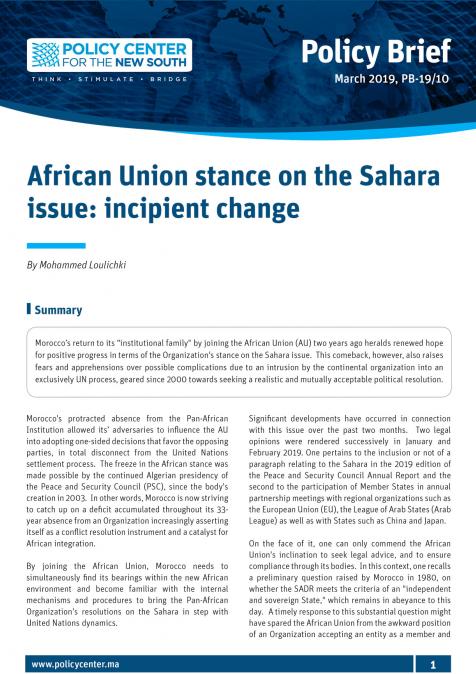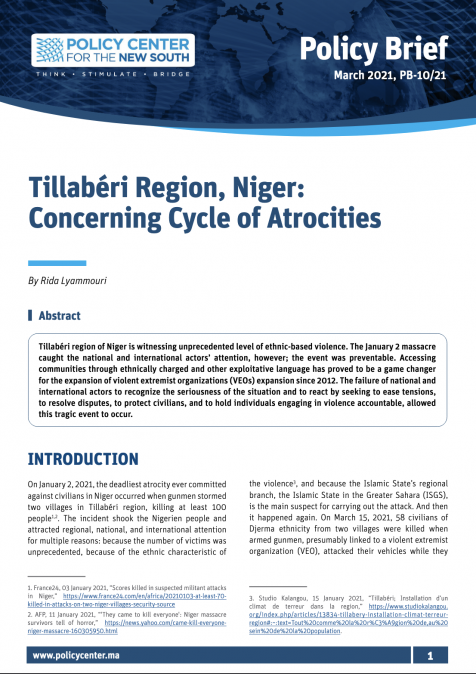Publications /
Policy Brief
Policy Brief
African Union stance on the Sahara issue: incipient change
March 20, 2019
Morocco’s return to its “institutional family" by joining the African Union (AU) two years ago heralds renewed hope for positive progress in terms of the Organization's stance on the Sahara issue. This comeback, however, also raises fears and apprehensions over possible complications due to an intrusion by the continental organization into an exclusively UN process, geared since 2000 towards seeking a realistic and mutually acceptable political resolution.









